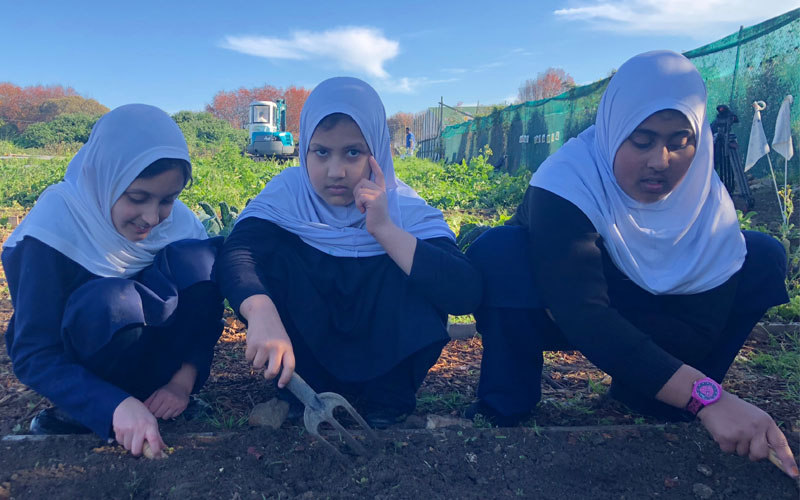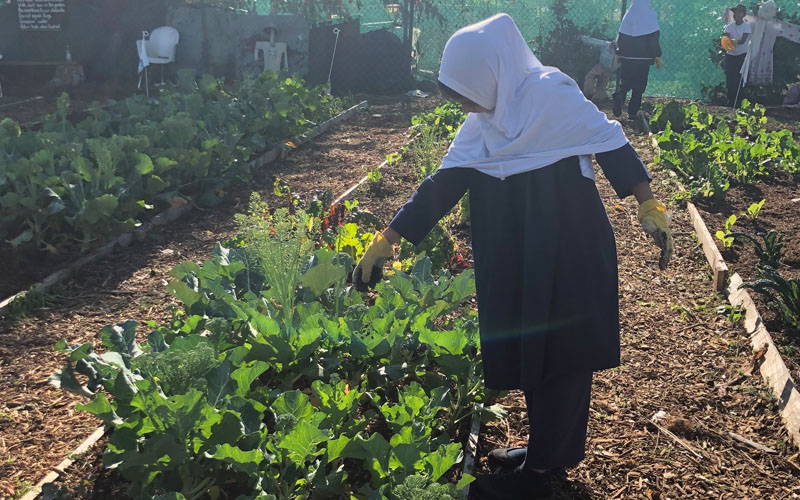
Students at Al-Madinah, a state integrated Muslim school in Māngere have a growing interest in gardening after the school established its own organic vegetable garden.
Healthy Families South Auckland Lead Systems Innovator, Raju Ramakrishna began the conversation with Principal Asin Ali in 2018 and both identified the potential to introduce a sustainable food system utilizing the school’s vacant land.
“The idea and thinking behind it was to impart knowledge to the students that they could pass down for generations,” says Raju.
Local community, parents and the Auckland Teaching Gardens Trust (ATG) have been integral in the development of the gardens.
“The local community came together and put in a lot of hours clearing the land in preparation for the garden beds, everyone got behind it and dedicated a lot of time and their own resources. It was awesome to see,” says Raju.
Since the first seeds were planted the vegetable garden has proven to be an excellent learning tool for the Al-Madinah students. Teachers have been able to bring the subjects to life through integrated learning in science, technology and mathematics.
“Out of the gardening project many other skills and aspects of the curriculum are taught,” says Asin.
Students began to realise how math could be used to measure the length, size and volume of the garden beds. Students were also able to bring words commonly used in the classroom to life and learn about growing chemical free vegetables.
“The students have been learning as it [garden] grows from measuring the garden beds to plant life cycles and environmental sustainability,” says Raju.
He says the creation of the gardens is a step towards re-introducing what is intrinsically a part of the community’s culture and identity. Agriculture has played a central role in South Asian communities which has traditionally been a male dominated industry.
“We have seen women take the lead on this. It’s been a great way for mothers of some of the students to connect in the community and meet new people while tending to the garden,” says Raju.
Principal Asin is now looking to the future and new ways to foster sustainable thinking amongst his students. He hopes to see the school re-purposing rainwater by having it recirculated, filtered and used in the school and especially the gardens.
“We would like to be an exemplar school so other students can come in and learn about what we are doing here,” says Asin.
Raju says it’s all about the cycle of sharing the knowledge from children to parents and vice versa.
“Agriculture is a part of our history, the garden keeps us growing and connected as a community, hopefully for many generations to come.”




